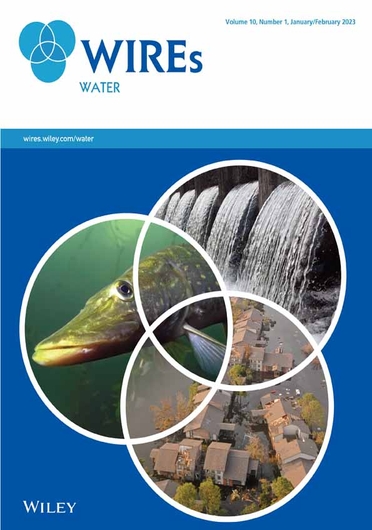What benefits are the most important to you, your community, and society? Perception of ecosystem services provided by nature‐based solutions
IF 5.8
1区 地球科学
Q1 ENVIRONMENTAL SCIENCES
引用次数: 8
Abstract
Ecosystem services (ES) provided by nature‐based solutions (NBS) have been examined using various data collection techniques and preference elicitation methods to understand what ES are important to human well‐being. This article provides a systematic review of 153 scientific publications, with a focus on data collection techniques and perspectives of well‐being used when eliciting preferences toward multiple ES provided by NBS. ES provided by urban parks, urban trees, and community gardens are the most commonly examined; however, generally specified NBS such as “green spaces” or “green infrastructure” prevail. The review further shows that the questionnaire surveys is the dominant technique for bringing evidence about the most preferred ES, followed by semi‐structured interviews and workshops. Only a limited number of studies use revealed or stated preference methods as a part of data collection efforts such as a choice experiment or contingent valuation. Additionally, the review defines three different perspectives of well‐being considered but rarely discussed in existing studies: individual; community; and society well‐being perspectives. As the concept of well‐being is hardly discussed in NBS literature and still depends on a large degree of subjectivity, this review highlights the need for future research that looks more deeply at individual, community, and social well‐being, which is influenced differently by the implementation of NBS.对你、你的社区和社会来说,什么好处是最重要的?感知基于自然的解决方案所提供的生态系统服务
基于自然的解决方案(NBS)提供的生态系统服务(ES)已经使用各种数据收集技术和偏好启发方法进行了研究,以了解哪些ES对人类福祉很重要。本文对153篇科学出版物进行了系统回顾,重点介绍了数据收集技术和幸福感视角,以及在引发对国家统计局提供的多个ES的偏好时使用的观点。城市公园、城市树木和社区花园提供的ES是最常被检查的;然而,一般指定的国家统计局,如“绿色空间”或“绿色基础设施”占上风。回顾进一步表明,问卷调查是为最受欢迎的ES提供证据的主要技术,其次是半结构化访谈和研讨会。只有有限数量的研究使用揭示的或陈述的偏好方法作为数据收集工作的一部分,如选择实验或条件评估。此外,该综述定义了三种不同的幸福感视角,但在现有研究中很少讨论:个体;社区;和社会福祉的观点。由于福利的概念在国家统计局的文献中很少被讨论,并且仍然依赖于很大程度的主观性,本综述强调了未来研究的必要性,即更深入地研究个人、社区和社会福利,这些都受到国家统计局实施的不同影响。
本文章由计算机程序翻译,如有差异,请以英文原文为准。
求助全文
约1分钟内获得全文
求助全文
来源期刊

Wiley Interdisciplinary Reviews: Water
Environmental Science-Ecology
CiteScore
16.60
自引率
3.70%
发文量
56
期刊介绍:
The WIREs series is truly unique, blending the best aspects of encyclopedic reference works and review journals into a dynamic online format. These remarkable resources foster a research culture that transcends disciplinary boundaries, all while upholding the utmost scientific and presentation excellence. However, they go beyond traditional publications and are, in essence, ever-evolving databases of the latest cutting-edge reviews.
 求助内容:
求助内容: 应助结果提醒方式:
应助结果提醒方式:


